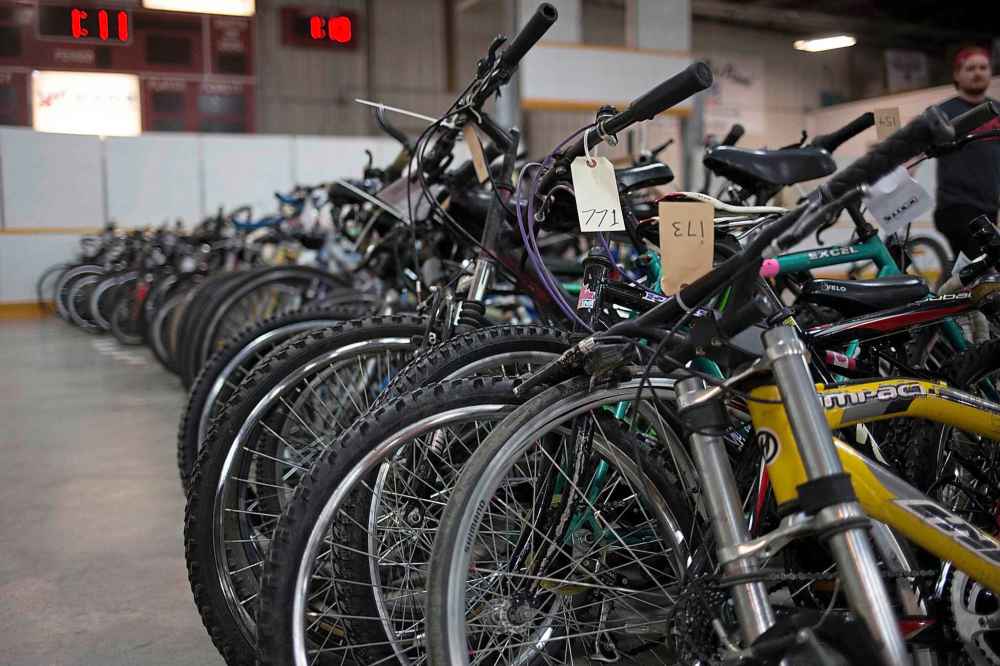Time to broaden the search for bike-theft solutions
Read this article for free:
or
Already have an account? Log in here »
To continue reading, please subscribe:
Monthly Digital Subscription
$0 for the first 4 weeks*
- Enjoy unlimited reading on winnipegfreepress.com
- Read the E-Edition, our digital replica newspaper
- Access News Break, our award-winning app
- Play interactive puzzles
*No charge for 4 weeks then price increases to the regular rate of $19.00 plus GST every four weeks. Offer available to new and qualified returning subscribers only. Cancel any time.
Monthly Digital Subscription
$4.75/week*
- Enjoy unlimited reading on winnipegfreepress.com
- Read the E-Edition, our digital replica newspaper
- Access News Break, our award-winning app
- Play interactive puzzles
*Billed as $19 plus GST every four weeks. Cancel any time.
To continue reading, please subscribe:
Add Free Press access to your Brandon Sun subscription for only an additional
$1 for the first 4 weeks*
*Your next subscription payment will increase by $1.00 and you will be charged $16.99 plus GST for four weeks. After four weeks, your payment will increase to $23.99 plus GST every four weeks.
Read unlimited articles for free today:
or
Already have an account? Log in here »
Hey there, time traveller!
This article was published 24/05/2019 (2393 days ago), so information in it may no longer be current.
The City of Winnipeg’s online bicycle registry is, on the face of it, a good idea.
A relatively inexpensive ($6.70 including GST) and convenient way to register your bike so that if it is stolen and then subsequently recovered by police, it can be returned to you.
In actual fact, the city’s bike registry is really more of a good idea trapped inside bad execution. The registry is neither popular nor effective and does not get at the heart of the issue.
In other words, it does not serve as a deterrent to the tidal wave of bike thefts occurring in this community.
The Winnipeg Police Service, which has the unenviable task of managing the rash of bike thefts, notes that about 3,000 bikes are officially reported stolen every year. The actual number is much higher; many victims of bicycle theft do not even bother to make a police report. Police do recover about 1,000 bikes each year, but only about 100 are returned to their lawful owners.

The bike registry was believed to be part of a solution that could improve the chances of owners recovering their bikes. Since its debut last year, the reviews have not been positive. Only a fraction of city bike owners are using the registry and the police have not reported that it has improved the chances of returning a stolen bike to its owner.
A recent administrative report looked at whether mandatory registration of new bikes at the point of sale would improve the registry’s chances of success. Although a city committee has yet to weigh in on the matter, the report advised against mandatory registration.
Is there a better way? Hundreds of communities and police forces across the continent are turning to an app called 529 Garage. Compared to the platform the city currently uses — which is hosted by a company whose speciality is building online registries for conferences and other live events — 529 Garage seems like a much more effective option, largely because it allows cyclists to not only register their bikes, but also report when they are stolen.
How much more effective? 529 Garage was one of the principal tools used by the Vancouver Police Service to combat bike theft. Over the first three years of that city’s “Log it or Lose It” program, Vancouver registered more than 70,000 bicycles and saw a 30 per cent decline in bike thefts. Police credit public education around the app, along with the use of a 529 Garage “shield” — a decal that identifies the bike as having been recorded in a continental data base — for the reduction.
One of the key elements of the app that reveals the limitations of Winnipeg’s registry is that 529 Garage allows police and citizens to recover bikes across jurisdictional borders. Organized crime often ships stolen bikes out of the communities in which they are stolen to be re-sold elsewhere. Indeed, Vancouver police have recovered stolen bikes in communities all over Western Canada and throughout the United States.
In Manitoba, however, only Brandon is working with 529 Garage. The WPS has had contact with the company that created the app, but clearly decided to go in a different direction with its own stand-alone registry.
Bike registries are not a panacea, but an effective registry can be a key part of a solution. Between continuing a stand-alone registry that appears to be failing in its chief mission and joining an interjurisdictional registry with a proven record of success, it seems the choice for city administrators and councillors should be pretty clear.










